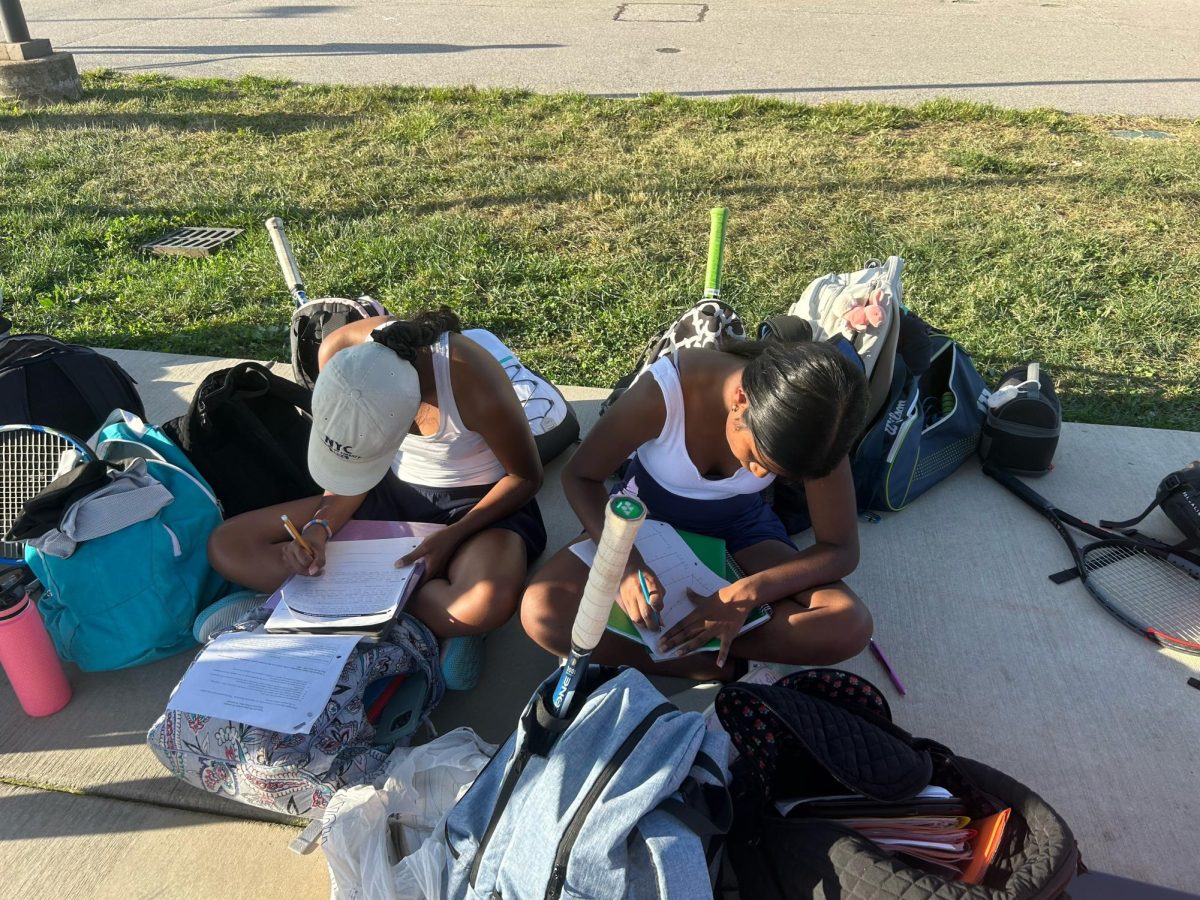Six AP classes. Five days of practice a week. Four clubs. Three volunteer hours each weekend. Two leadership positions.
One student.
As college acceptance becomes more and more competitive, students feel the need to be “sensational” in order to stand out.
From difficult classes and standardized test scores to balancing clubs, sports and a job, students attempt to be involved in everything. Yet, this overexertion costs teens much more than it benefits them.
I’ll be the first to admit that I try to be one of these students. My planner is overflowing with homework, club meetings, ACTs, dance rehearsals and the occasional babysitting job. In the spring, this list will only grow as AP testing nears and my track season begins.
Just like my peers, I’ve fallen into the trap of associating the word “successful” with “overachievement.” I always used to see students who participated in everything as an awe-inspiring kind of superhuman, but after trying it myself, I’m not so sure.
Are my AP classes really worth it if I’m staying up past midnight each day just to finish the homework from two class periods ago?
What about my clubs that block out the Ac Labs that I need to get help from my teachers?
As the year has progressed, I’ve slowly felt my battery drain. I look around at my peers, powered by energy drinks as they constantly work, and I get the sinking sensation that maybe trying to be a “remarkable” student isn’t worth it.
Students who are involved in too many activities face burnout, Paula Ake, college and career counselor, said. They often lose the energy and their enthusiasm for doing something in the first place.
“An activity should be something they truly enjoy versus trying to live up to some expectation and be bigger and better than anyone else,” Ake said.
What’s more, “sensational” students aren’t necessarily what colleges and employers want to see.
“What colleges, employers, really anyone after high school is looking for in a student’s application is quality over quantity,” Paula Ake, college and career counselor, said. “They want students to participate in the things that matter to them, things where they can make an impact and commit their time and energy to versus a long list of many things that they cannot give their all to.”
If students are involved in everything, they can’t be really good at anything. Truly successful people understand that it’s not about how many things a person does, but how well they do them.
“Colleges don’t want to see a member of 18 clubs,” Ake said. “They would prefer to see a lot of service hours in two or three clubs, or a leadership role in one or two different organizations.”
High school should be a time where we explore our interests, but not to the point where we overload ourselves. Students, including myself, need to let go of the idea that we have to do more activities than everyone else to be successful. Instead, we should focus on a few areas to do our best so we can excel in what we are passionate about.





